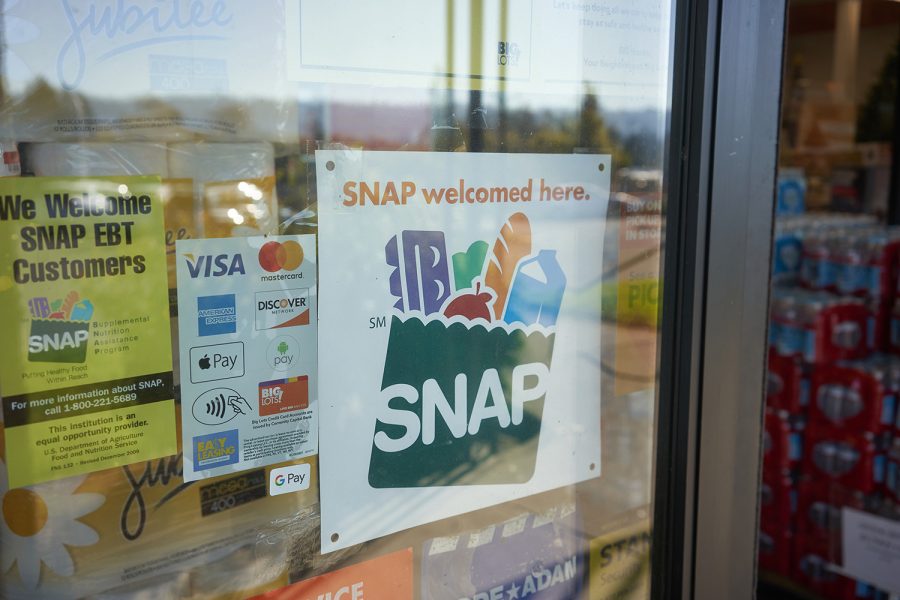Opinion | It’s not time to cut back on SNAP benefits
Iowa cut extension to the Supplemental Nutrition Assistance Program, leaving many families and individuals to deal with high food costs and fewer benefits.
April 26, 2022
Extra SNAP benefits tied to the pandemic have ended in Iowa, leaving many individuals and families without the assistance they need. Because of this cutback, food pantries in Iowa are seeing increased demand and must make up for a lack of government assistance.
Food is a basic necessity. Iowa’s government should make it a priority that no Iowan is scrambling to feed themselves or their family, and ending SNAP benefits was not the way to do this.
In response to the spikes in poverty and food insecurity at the beginning of the pandemic, the federal government took action by expanding SNAP benefits, unemployment benefits, and more. Iowa is now one of 12 other Republican-led states to opt out of the expansion starting this month.
SNAP benefits have not only been important during the pandemic. The program is the largest in the U.S. for addressing hunger and poverty, serving over 41 million people. In February, 15 million U.S. households were allotted expanded SNAP benefits.
Food insecurity increased by 33 percent in Iowa during the pandemic, and there was a 168 percent increase in the distribution of SNAP benefits. Now, Iowans who may have relied on this have to turn elsewhere to address their food needs.
The Hawkeye Area Community Action Program, or HACAP, has seen a 20-percent increase in the use of its services this month. The HACAP provides services to address homelessness, children, veterans, energy conservation, and health and nutrition. The volunteer coordinator of HACAP reported that an estimated 65 percent of people coming to the food pantry earlier this month had never been there before.
Other food banks have seen and are addressing the impact of these cuts. Feeding America estimates it will spend 40 percent more in fiscal 2022 than in previous years.
With drastic upticks in Iowans needing food assistance, it is clear that cutting back SNAP benefits has in no way been beneficial. Iowa Gov. Kim Reynolds has said cutting back on these extra benefits is necessary to get people working. However, Iowa has yet to address a living minimum wage, meaning work doesn’t guarantee people won’t need benefits.
This logic is especially troubling considering increases in the prices of goods. There has been an 8.5-increase in inflation, with food prices rising the fastest. It was estimated that Americans are paying 10 percent more for groceries than in previous years. These rises are not expected to drop soon, either. As a result, many families are facing double the struggle with cuts on SNAP benefits and high food prices.
This inflation makes it all the more necessary to take action to accommodate these prices.
Common sense tells us that, instead of cutting back on SNAP benefits in hopes of decreasing unemployment, Iowa should look at ways to mitigate poverty by raising the minimum wage, expanding benefits, and investing in long-term solutions.
Food banks should not be overwhelmed with the task of feeding Iowans. We need our government to take action and address these needs.
Columns reflect the opinions of the authors and are not necessarily those of the Editorial Board, The Daily Iowan, or other organizations in which the author may be involved.



